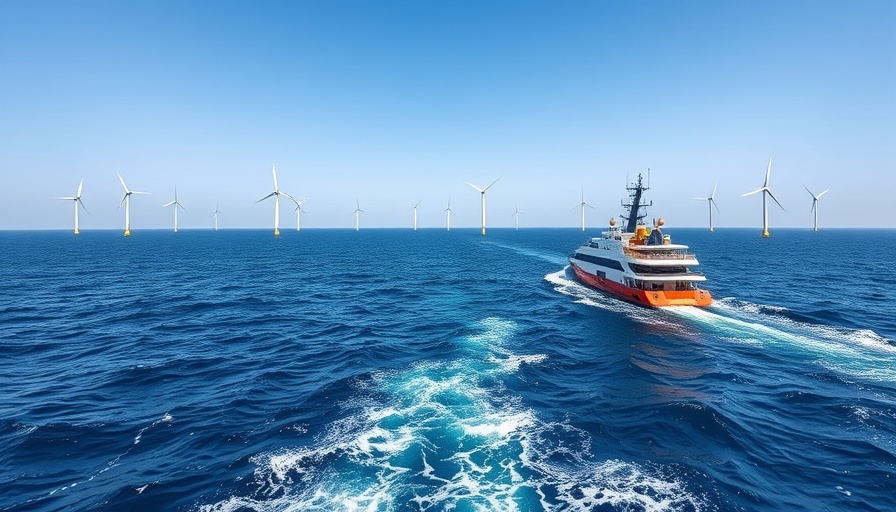
Seaspan's Major Investment in Canada's Marine Industry
In a commendable move reflecting Canada's commitment to bolstering its marine and defense sectors, Seaspan Shipyards has forged a pivotal master service agreement (MSA) with Tri-Metal Fabricators (TMF) based in British Columbia. This agreement heralds the provision of more than 80,000 fabricated parts crucial for outfitting Canada’s upcoming heavy polar icebreaker—labelled as the most powerful ship in the Canadian Coast Guard's fleet.
Details of the Agreement
The MSA outlines an initial demand for over 26,000 precision-fabricated components that will be delivered over the next two years. This is not merely a contract but a strategic collaboration aimed at enhancing Canada’s shipbuilding capabilities. As the ship will operate year-round in the Arctic, its role extends beyond mere logistics; it is pivotal in search and rescue operations, scientific research, and asserting Canada’s sovereignty in the northern territories.
A Boost to Local Employment and Economy
To meet the demands of this MSA, TMF is expanding its operations by adding a third shift at its Surrey facility, creating 25 additional local union jobs. This move aligns with the National Shipbuilding Strategy (NSS), which aims not only to modernize Canada's naval fleet but also to invigorate local industries and empower the domestic workforce.
Strengthening the Supply Chain Ecosystem
TMF is committed to sourcing materials locally, including class-certified steel from Stigterstaal Canada, which enhances the collaboration between local suppliers and consolidates the industrial synergies within British Columbia's marine ecosystem. This emphasis on local sourcing is integral to the MSA, as it champions the utilization of Canadian resources and workforce, thus reinforcing the national agenda of promoting local industries.
The Heavy Polar Icebreaker: A Technological Marvel
Seaspan commenced full-rate construction on the icebreaker in April 2025, and its delivery is eagerly anticipated. Designed to withstand ice thicknesses of up to 2.5 meters continuously, this vessel will not only serve the needs of the Canadian Coast Guard but also provide technological advancements to navigate the extreme conditions of the Arctic. This aligns with responsible strategies in addressing climate-related changes impacting Canada's northern passages.
Looking Ahead: What This Means for Canada
The agreement between Seaspan and TMF underscores the broader implications for Canada’s marine industry—strengthening domestic capabilities while paving the way for future innovations in shipbuilding. As Joe Toso, president of TMF, remarked, this MSA signifies a milestone, reinforcing a future where Canada can rely on home-grown solutions for complex maritime challenges.
Concluding Thoughts
With the signing of this MSA, Seaspan and TMF are not just entering a contractual relationship but are nurturing a local ecosystem that promises long-term growth and stability. The successful execution of this project will likely set a precedent for future collaborations in Canada’s marine sector, ensuring that the country’s defense industrial base remains strong and competitive in the global arena.
 Add Row
Add Row  Add
Add 




Write A Comment